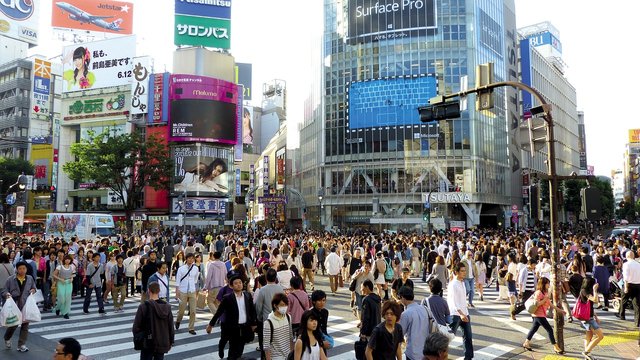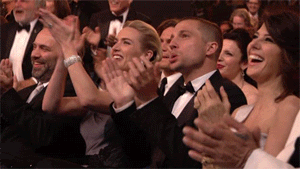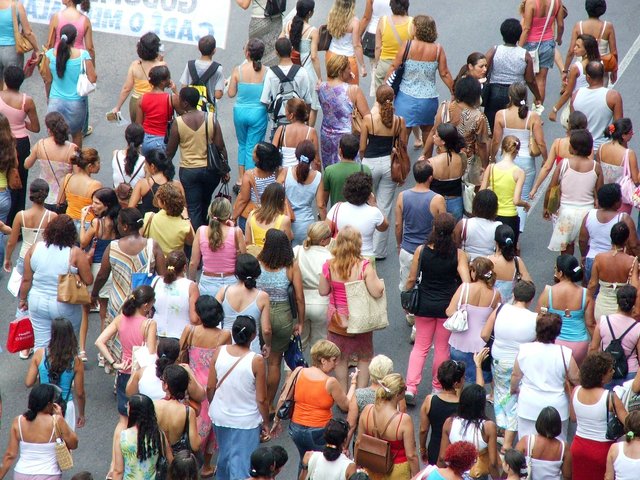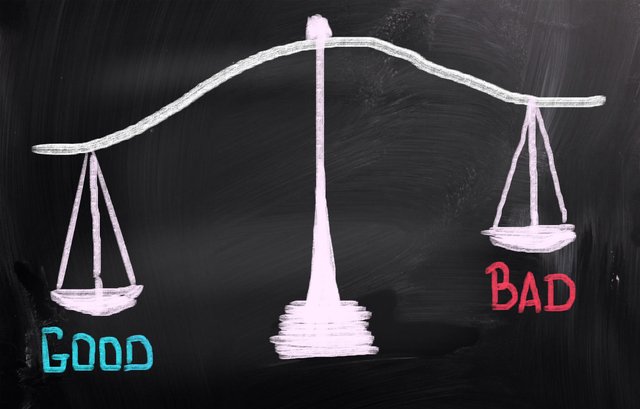Good Vs Bad

If you search the web for random acts of kindness, it won't take you long to stumble upon thousands of different videos of people helping others to pay for groceries, people saving animals and other individuals that are in danger, giving food or money to those in need, and plenty more.
Along with those stories, you'll often see comments praising the individuals in the clip, for the good people that they are.
What a good friend, husband, wife, daughter, brother, they must be, because of the 30 second clip that we've now just seen where they've gone above and beyond to help someone else in need.

But is it reasonable to judge someone as being a good or a bad person because of a few seconds that we've witnessed them living?
One event doesn't encapsulate who a person is, and this rings true whether or not it's a good event or a bad event. When we see someone has committed a crime for example, it's easy to toss them aside, considering them to be 'undesirables' that have no redeeming qualities or potential for rehabilitation.
Even though someone might have committed a crime, or several, doesn't mean that they also haven't engaged in many acts of kindness throughout their life, or that they don't have the potential for kindness. And although someone might be seen helping another with their groceries one day, or donating a great deal of wealth to charity etc, doesn't mean that they also don't have the potential to commit unjust violence.

It isn't reasonable to judge someone as a “bad person” simply because they've engaged in wrongdoing and made mistakes. It can often feel like it's the right thing to do, though. Because it's easy to judge from the outside, but we don't know everything that contributed to where they landed in their life and why they made the decisions that they did.
What stress or pressures in their lives that they might have been dealing with. What we go through in our lives has a tremendous impact on how we view and interact with the world around us.
No one is perfect and we all have flaws, make mistakes, are all capable of hurting others either intentionally or unintentionally. It can be very easy to jump to assuming that we know all that an individual has to offer, but this can interfere with us exercising empathy, understanding, and love for others. It's unreasonable to lock others into the judgement of being "good" or "bad" when we all have the potential for both, and when what's considered 'good' or 'bad' itself is also wildly subjective.

Psychologists have previously suggested that thinking in these “good vs bad” terms can be quite limiting, and could contribute to an exaggerated image of ourselves especially if we find ourselves doing many “good things”.
Instead, they recommend that individuals define for themselves what a good person is and then rate themselves according to that continuum.
Some questions that psychotherapists have suggested could be asked when trying to determine the “goodness” are things such as whether or not you have compassion for others, if you're giving to others, or if you place material possessions before people in your life, and more.
Despite the difficulty in forgiveness, the truth is that people can be rehabilitated and we all have the capability to display good or bad qualities, to engage in love and acts of kindness or to hurt others. Human nature is far more complex than simply sifting everyone into one of two categories.
Pics:
pixabay
giphy
pixabay
pic3

I definitely think that we all have good and bad in each of us. Good people can do bad things and visa versa.
Sure an isolated good deed does not a good person make, but it can be a start. These categories are just a simplification to help us classify and store so that we don’t have to think about them again.
I love the statement that people can be rehabilitated. Forgiveness can feel like being taken advantage of but is so constructive.
Posted using Partiko iOS
Just watch the Punisher series on Netflix for a prime example of this. Is someone who only murders bad guys a good or bad guy?
Short answer? Yes.
@gniksivart... so the end justifies the means?
This post has been voted on by the SteemSTEM curation team and voting trail in collaboration with @curie.
If you appreciate the work we are doing then consider voting both projects for witness by selecting stem.witness and curie!
For additional information please join us on the SteemSTEM discord and to get to know the rest of the community!
It is so much easier to be judgemental rather than be accepting. Everyone makes mistakes and no-one is perfect. Helping each other along the way is about being kind and caring and we can all do with a bit of that in whatever form it comes.
Oh, judge not... yes? Some of the nicest people I have ever met, it was while I was serving them a meal at a shelter. Being homeless doesn't make them bad, but, the circumstances that led them there may make you judge them that way.
All it takes is a lapse of judgement. I also learned pretty qrickly not to judge. A lot of those people were professional in a bad place or recovering or.... or... it doesn't make them bad. And by the way, everybody is just one paycheck from homelessness. It is that easy.
And yes, I am way off tangent.
!tip
🎁 Hi @doitvoluntarily! You have received 0.1 SBD tip from @dswigle!
Check out @dswigle blog here and follow if you like the content :)
Sending tips with @tipU - how to guide :)